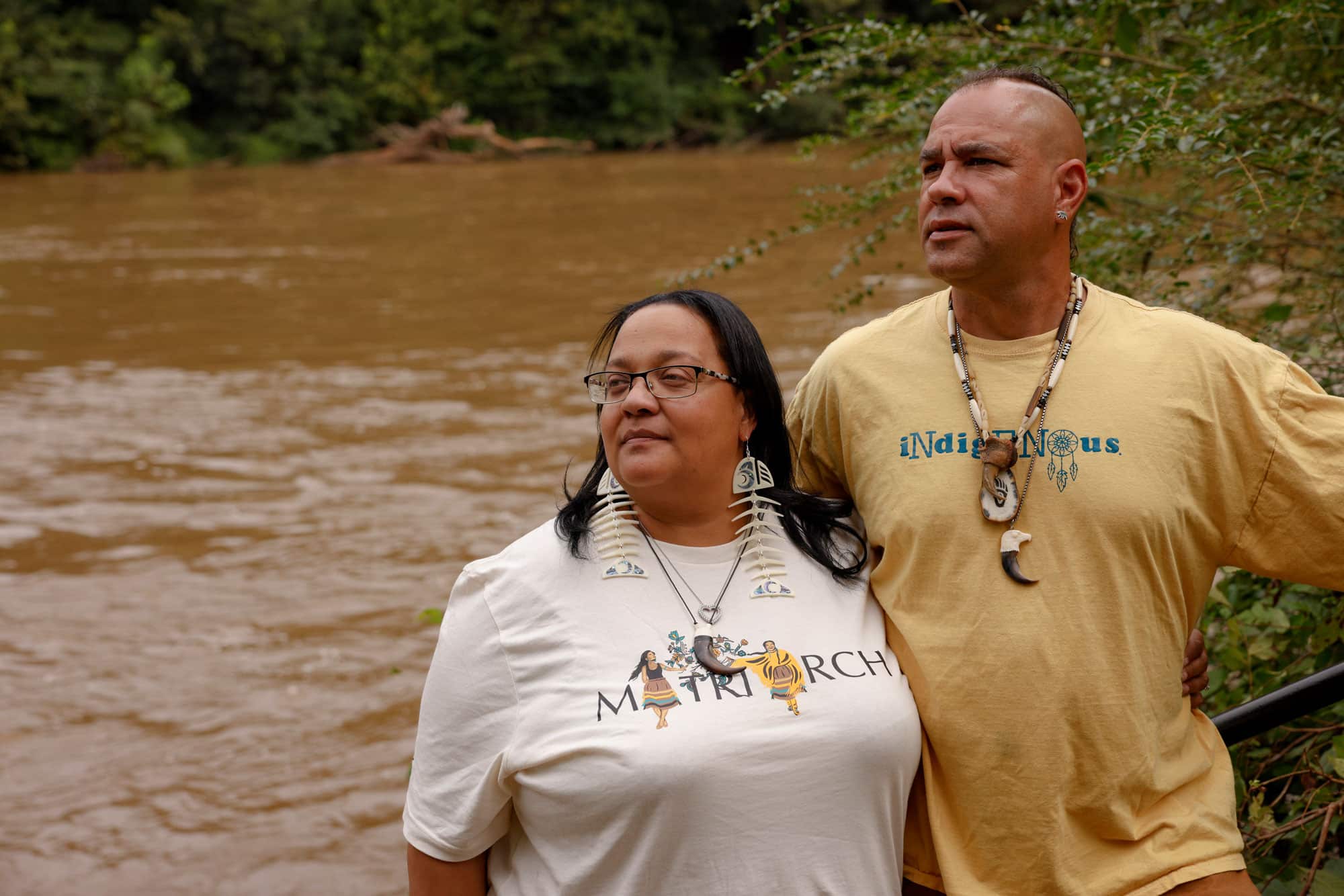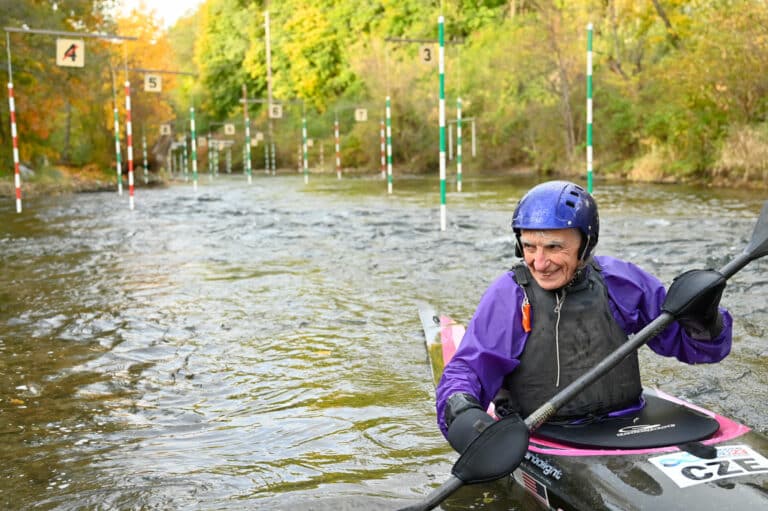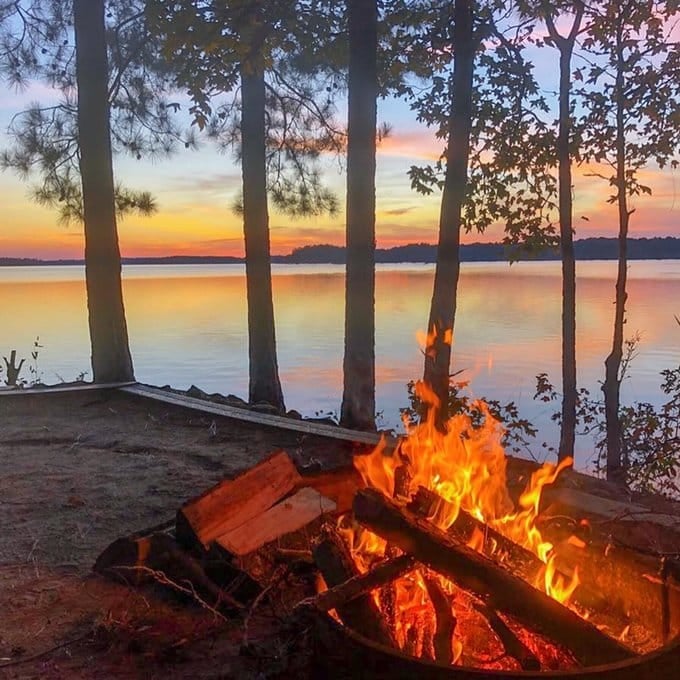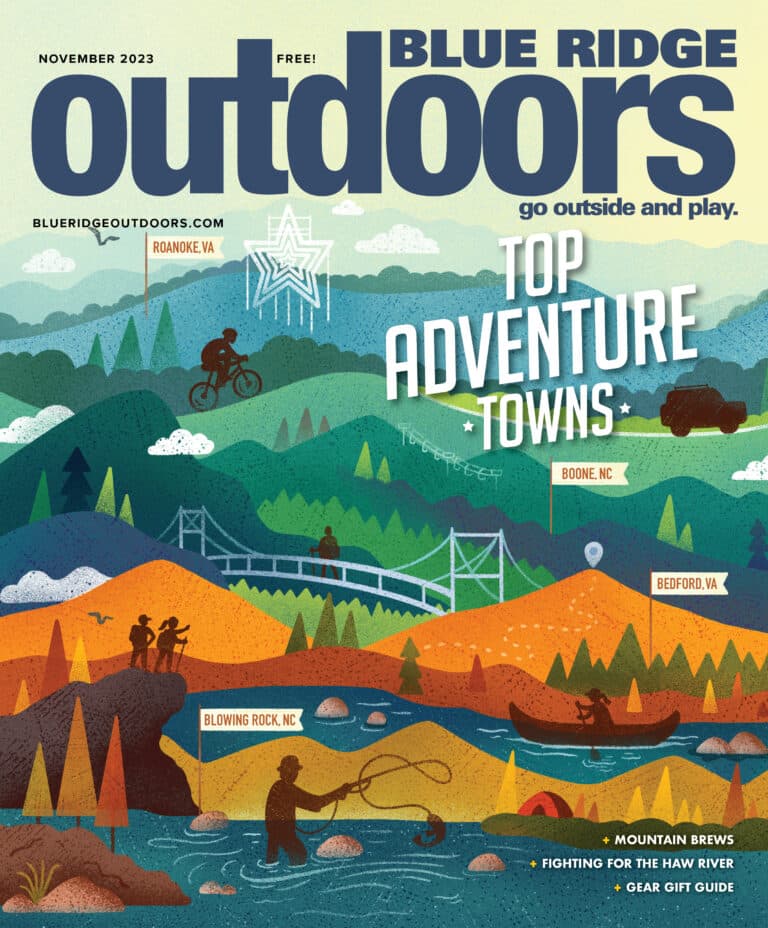Indigenous leader Crystal Cavalier-Keck fights for a beloved North Carolina river
Where does your water come from?
It’s a simple question that most Americans can’t answer. We turn on the tap without knowing the source. The truth is: more than two-thirds of Americans’ drinking water comes from rivers.
For Crystal Cavalier-Keck, a mother, educator, and a member of the Occaneechi Band of the Saponi Nation in North Carolina, her water source is the Haw River—a river that has been polluted and poisoned for a century. It was named one of the country’s most endangered rivers in 2014 due to millions of gallons of sewage, industrial waste, and polluted runoff.
Last month, the toxic chemical 1,4-dioxane was dumped into the Haw River at levels 1,300 times the EPA health limit. It’s the second toxic release into the Haw River this year, affecting the drinking water for hundreds of thousands of people downstream.
Rather than fight every spill, Cavalier-Keck is taking a more holistic approach: advocating for the river’s rights.
Indigenous people have long honored the inherent value of rivers and lands, but in the United States, rivers have no such recognition. Meanwhile, corporations have legal personhood: Coca-Cola, McDonalds, and Facebook have more legal rights than some people. Corporations can own property, sue people, donate millions to candidates, and dump toxic pollutants into rivers.
If corporations have personhood, why can’t rivers?
Cavalier-Keck—and her organizing collective 7 Directions of Service—have been leading a campaign to legally recognize the Haw River’s right to exist. Thanks to their advocacy, a bill was recently introduced in the North Carolina legislature to protect the Haw River’s rights to exist. Introduced by N.C. Representative Pricey Harrison, House Bill 795—The Rights of the Haw River Ecosystem Act—would secure the rights of North Carolinians to a healthy, flourishing Haw River ecosystem. “It’s the first-ever state bill in the United States to offer legal protections for a river.
Rights have already been granted to rivers and lands in Ecuador, Bolivia, and New Zealand, and thanks to Cavalier-Keck and others, rights of nature have started to gain traction in the United States. BRO spoke with Cavalier-Keck about the North Carolina bill, a proposed pipeline threatening the Haw River, and what inspires her to keep fighting.
BRO: What inspired you to do this work?
CCK: Indigenous people have always seen nature as a living relative. We were born into water from our mother’s womb. Like the Earth, we are made of mostly water.
Today, we have mostly lost our connection to water and to nature. My family used to fish and hunt and farm the land. Modern times have changed us—all of us, Westerners and indigenous people too. Our work-week lifestyles don’t allow us time to connect to the land and water. And our rivers have become too sick to support us. Pesticides and poisons in the river mean we can’t fish or swim there safely anymore. The current laws aren’t working.
We can’t just keep playing defense. We also have to be proactive in protecting what is most important and redefining our relationship to the rivers that sustain us. This movement will grant the Haw River its own rights to abundant, pure, clean, unpolluted water.
BRO: How did you get a river rights bill introduced in North Carolina?
CCK: For our communities, protecting the health of our rivers has proven to be a nonpartisan issue. Water consistently unites us across differences.
Already, there is widespread support for the Haw River Trail, which is proposed to expand to 80 miles of land and water trails along the river. The Haw River is part of the Mountains-to-Sea Trail, North Carolina’s official state trail. The trail has broad political and public support, and so does the health of the river that flows beside it. Why not protect the river as well?
We are also leading paddling trips and monthly visits that help people reconnect to the river. The communities along the river want to see it protected, and that has helped build momentum and support for the bill.
BRO: How would the bill actually work?
CCK: The bill would allow any North Carolinian to sue a polluter or state agency on the river’s behalf.
BRO: Does this bill have any chance of becoming law?
CCK: It’s still a long shot, but we’re playing the long game here.
Many things divide us, but rivers unite us and bring us together. Rivers are part of communities. We have seen widespread public support for protecting the Haw River from many different backgrounds and beliefs.
Once people learn about the river, its health, and its connection to their health, they want to see it protected. We may not all agree on everything, but we can still like each other and work together wherever we can. Rivers are a great place to start.
This is a collective effort that will require many different people to come together. One person in a canoe paddling just goes in circles. We need many people paddling together.
BRO: Will the proposed Southgate extension of the Mountain Valley Pipeline threaten the Haw River?
CCK: The pipeline is one of the greatest threats to the river and our communities. It is a proposed 73-mile extension of the Mountain Valley Pipeline into North Carolina onto Monacan and Saponi lands. They are condemning our ancestral lands to build the pipeline. It will also require the construction of a compressor station in a predominantly Black Community near Chatham, Virginia. Communities of color will be most affected by this pipeline, which will require an eight-foot trench and permanent clearcutting and pesticides along its right-of-way. And the pipeline would go directly through the Haw River watershed.
I gave up a tribal council position, a job, and a big part of my life to fight this pipeline. And I am going to keep fighting.
Rivers sustain us. Can we do the same for them? Why would we sacrifice such a precious and finite resource? Without clean water, all life suffers.
Cover photo: Crystal Cavalier-Keck and her husband Jason Crazy Bear Keck are co-founders of 7 Directions of Service and protectors of the Haw River. Photo by Tailyr Irvine.








